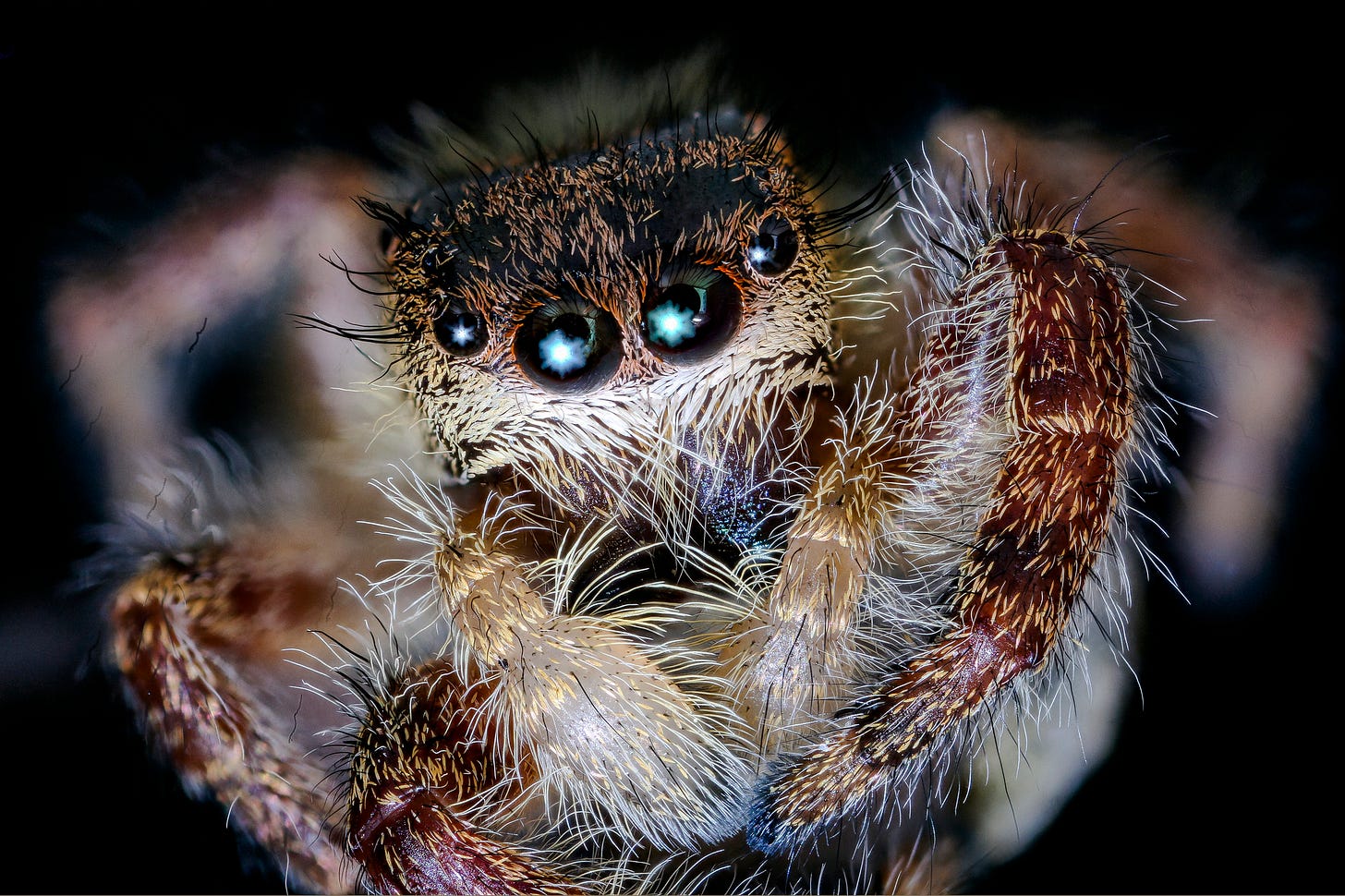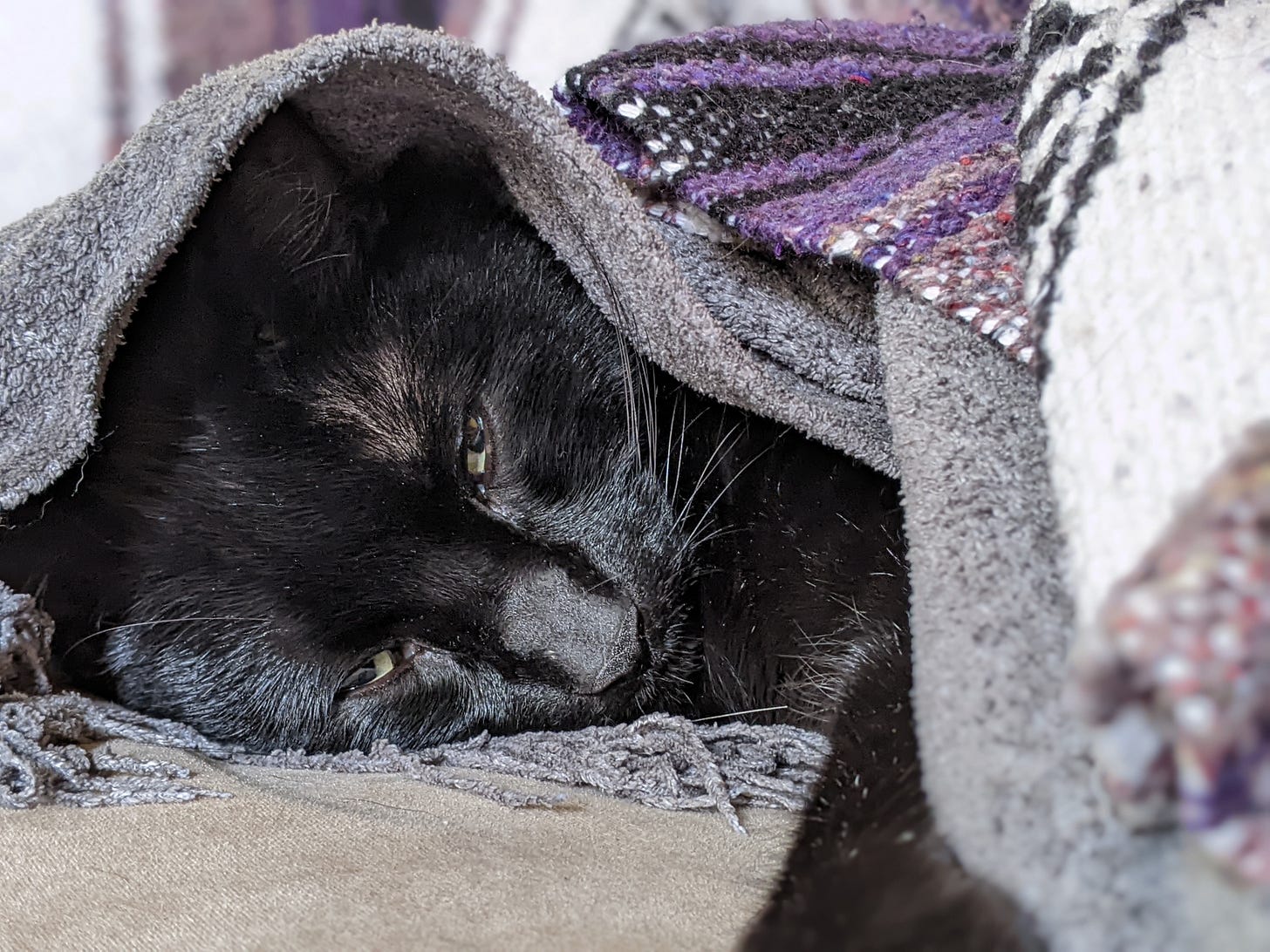
Hello, hello!
Did you know that an official music video for Carly Simon’s “You’re So Vain” was released just about 10 years ago? And that it’s bananapants? Well, I didn’t until earlier this week, when I had to explain to my beloved partner who, exactly, Carly Simon is. He claims to have never heard this song, which I find unfathomable.
(I’m sorry to call you out like this, Daniel, even though you said I could, but … CARLY SIMON?! This might be worse than the time you asked me if the Spice Girls counted as Riot Grrrl.)
What a humbling reminder that my experience is not universal, and also never to leave a pie cooling by an open window. Anyway, on to the links.
Speech vacation
“How America turned against the First Amendment” | Adi Robertson, The Verge
Everyone loves the First Amendment … until it comes to laws about the internet. (Or just, you know, speech they don’t like. But this article is mostly about the internet.)
Rather than seriously grappling with technology’s effects on democracy, many lawmakers and courts have channeled a cultural backlash against “Big Tech” into a series of glib sound bites and political warfare. Scratch the surface of supposedly “bipartisan” internet regulation, and you’ll find a mess of mutually exclusive demands fueled by reflexive outrage. Some of the people most vocally defending the First Amendment are the ones most open to dismantling it — without even admitting that they’re doing so.
Thread count
“Keep Your Bird-Watching—I’m a Spider Man” | Adam Roy, Outside
Spiders are awesome. If you’re not on board … well, maybe this guy can convince you. (At the very least, he dismantles the web of lies — pun intended — you’ve been told about them.)
Let’s get this out of the way: spiders are not as dangerous as you think. Of those 50,449 species in the world, only about 100 are known to be potentially deadly to humans. It’s possible to rule out entire families of spiders as hazardous just by looking at them. No spider anywhere that makes an orb-shaped web—the classic circular pattern from your Halloween decorations—can cause permanent harm to a human. Nor can the googly-eyed, short-legged jumping spiders. Tarantulas aren’t capable of killing you, though the bites of some of the old-world species can be painful. Huntsman spiders grow big enough to kill small bats, but not people.
Even the species that are potentially dangerous to humans—what scientists call the “medically significant” spiders—aren’t nearly as deadly as their reputations would suggest.
Also, I learned from the editor’s note that you can get a clip-on macro lens for your smartphone camera! Very cool.
Game stop
“What Moneyball-for-Everything Has Done to American Culture” | Derek Thompson, The Atlantic
This is a pretty interesting piece on how min-maxing can ruin games — in the prime example here, baseball. I thought this was a pretty interesting concept:
The religion scholar James P. Carse wrote that there are two kinds of games in life: finite and infinite. A finite game is played to win; there are clear victors and losers. An infinite game is played to keep playing; the goal is to maximize winning across all participants. Debate is a finite game. Marriage is an infinite game. The midterm elections are finite games. American democracy is an infinite game. A great deal of unnecessary suffering in the world comes from not knowing the difference. A bad fight can destroy a marriage. A challenged election can destabilize a democracy. In baseball, winning the World Series is a finite game, while growing the popularity of Major League Baseball is an infinite game. What happened, I think, is that baseball’s finite game was solved so completely in such a way that the infinite game was lost.
The grind
“Just Beans: What Was Ethical Consumption Under Capitalism?” | Malcolm Harris, The Drift
There is no ethical consumption under capitalism. If you’re involved in leftist politics at all, or if your slice of the internet looks anything like mine, you’ve run across the phrase; you may even have seen someone use it in an attempt to justify their Shein haul. But how did it come to this? Here’s an attempt at digging up that history.
The triumph of Margaret Thatcher’s neoliberal slogan that “There is no alternative” (as in, to market policies and government austerity) — commonly known by the acronym TINA — has yielded a corresponding left-wing truism: “there is no ethical consumption under capitalism” or “TINECUC.” As a retort, TINECUC works on capitalists whether they’re using morality to hawk shoes or alleging hypocrisy when they see a communist holding an iPhone. And it works among fellow anti-capitalists who demand collective adherence to rarified purchasing patterns. If TINECUC, then there’s no ethical reason to forego a pandemic Hawaiian vacation or to buy the optional carbon offsets. As a result, most anti-capitalists currently understand consumption to be strictly personal: politicizing consumption only serves to marginalize leftists as picky eaters within mainstream society and welcomes capitalism’s salespeople at the same time. Better to insulate consumption from accountability than to set ourselves up to be played by marketers and bad-faith fellow leftists who see litigating consumption choices as an easy way to jockey for power, prestige, attention, or even money itself.
Adherence to TINECUC allows organizers to focus on building solidarity between workers or community members rather than buyers, whose common interests may be superficial. It is also, in a world system of production based on exploitation, a factually true statement, insofar as no purchase of anything made with exploited labor has any business branding itself “ethical.” But the unexamined phrase isn’t worth using; before people start attributing TINECUC to Marx or Lenin, we should figure out how Sandinista beans turned into Starbucks — and how anti-consumerist politics fell out of fashion on the American left.
Until next week, here’s Arthur.



